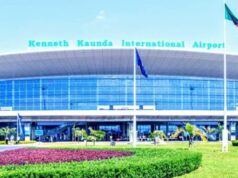
(3 minutes read)
Tanzanian President Samia Suluhu Hassan is expected to make a historic visit to India to boost “excellent historical ties” that exist between them stated Tanzanian Foreign Minister January Makamba. The visit comes at a time when there are heightened relations between the two nations, including in military and defence areas.
Tanzanian President Samia Suluhu Hassan is expected to make a historic visit to India to boost “excellent historical ties” that exist between them stated Tanzanian Foreign Minister January Makamba. The visit comes at a time when there are heightened relations between the two nations, including in military and defence areas. During the visit, President Samia is expected to address the Tanzania-India Business and Investment Forum co-organised by three premier business associations in India – FICCI, CII, and ASSOCHAM – and Tanzania Investment Centre (TIC) and the Tanzania Private Sector Foundation (TPSF).
A delegation of about 80 businesspeople from Tanzania will join India’s 130 top businesspeople for the forum. While in India, Samia is also expected to hold a CEO Roundtable with India’s top 15 CEOs and business leaders to discuss investment opportunities in key sectors in Tanzania. While in the country, the Tanzanian leader will hold official bilateral talks with India’s Prime Minister Narendra Modi and the country’s President Droupadi Murmu, who will also host a State Banquet in Samia’s honour.
About 15 agreements on cooperation between Tanzania and India will be signed during the visit, Makamba revealed, covering education, agriculture, blue economy, defence, maritime security, health, ICTs, trade and investment, water and other sectors. India will also seek to establish a sizable industrial park on the outskirts of Dar es Salaam, the minister added. At the conclusion of the visit, the two leaders will make some important announcements on the elevation of the partnership between the two countries.
Samia’s visit to India, described as the world’s largest democracy, comes almost seven years since the Indian prime minister visited Tanzania in July 2016, where he met and held talks with former President John Magufuli. Several agreements were signed during this visit, which included the agreement to establish a vocational training centre in Zanzibar. The centre, called IIT Madras Zanzibar campus became operational with 70 students. The visit also comes almost a month after India’s Foreign Minister, Dr S. Jaishankar’s visit to Tanzania.
India is also among the top five investment sources in Tanzania, and as per the Tanzania Investment Centre (TIC), Indian investments in Tanzania add up to USD 3.68 billion. Apart from trade, India and Tanzania also have long-standing defence cooperation in trading, capacity building and equipment supply, strengthened by the Memorandum of Understanding (MoU) on defence cooperation the two signed in 2003, which has allowed India to export arms and ammunition to Tanzania. The MoU provides an over-arching framework for progressing various defence cooperation initiatives between the two countries. In recent years, India and Tanzania have cooperated in defence training in Indian institutions.
Read Also:
https://trendsnafrica.com/tanzania-invites-investors-in-feed-production/
https://trendsnafrica.com/tanzania-registers-appreciable-increase-in-its-revenue-collection/
https://trendsnafrica.com/tanzania-acquires-new-passenger-aircraft/
Tanzania has interacted with India as long as monsoon winds have been blowing over the Indian Ocean. India was one of the first countries to open an embassy in Tanzania in 1961, and Tanzanian embassy in Delhi was one of the first few in 1962. Tanzania and India have traditionally enjoyed close, friendly and cooperative relations. From the 1960s to the 1980s, for example, the political relationship involved shared commitments to anti-colonialism, non-alignment, as well as South-South Cooperation and close cooperation in international fora.





